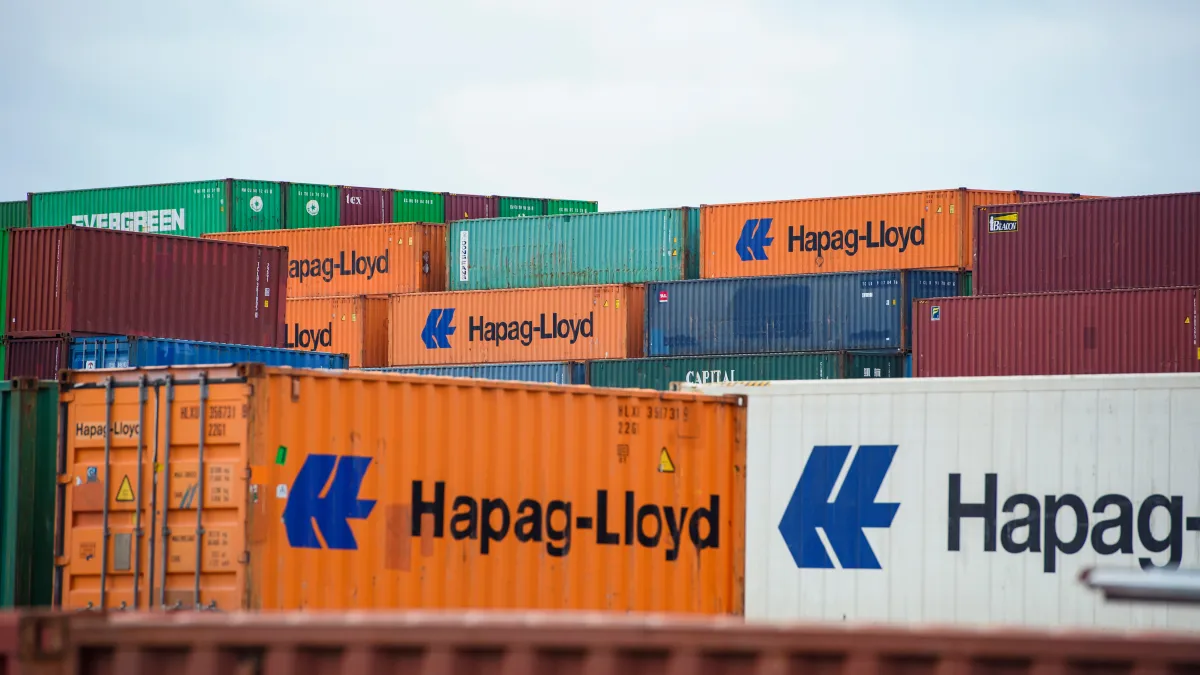A group of major ocean carriers committed to a timeline transitioning from paper bills to electronic bills of lading, known as eBL, in a bid to eliminate inefficiency and accelerate the digitization of trade.
The Digital Container Shipping Association, whose members include major ocean carriers like A.P. Moller – Maersk and MSC, committed last week to converting 50% of original bills of lading to electronic within five years. By 2030, the carriers will issue all-electronic bills of lading.
"This heralds the start of a new era in container shipping as the industry transitions to scaled automation and fully paperless trade," DCSA CEO Thomas Bagge said in a statement. "Document digitalisation has the power to transform international trade and requires collaboration from all stakeholders.”
Trade documentation can be a time-consuming and resource-intensive process.
During the COVID-19 pandemic, thousands of containers lingered in ports because flights carrying verified documents to release the containers were canceled, according to a McKinsey & Company study. Converting from paper bills could save stakeholders $6.5 billion in direct costs and enable $40 billion in global trade, the study says.
DCSA has been working on creating digital standards in the ocean shipping industry since its formation in 2019. The association includes several other major international container lines: Hapag-Lloyd, CMA CGM, ONE, Evergreen, Yang Ming, HMM and ZIM.
Several ocean carriers have already began using various methods of eBLs.
Hapag-Lloyd CEO Rolf Habben Jansen said the company has been offering electronic bills of lading to streamline document handling and reduce its carbon footprint since last year. Meanwhile, ZIM has offered eBLs through its WAVE platform since 2017 and MSC is hosting a webinar on Feb. 22 about onboarding and using eBL through a third-party company called WAVE BL.
"The 100% eBL goal is an important milestone for the shipping industry, paving the way for the digitization of the entire value chain," CMA CGM EVP of Shipping Olivier Nivoix said in a statement. "It will help reduce lead times and costs, improve customer satisfaction and achieve CSR goals.”














